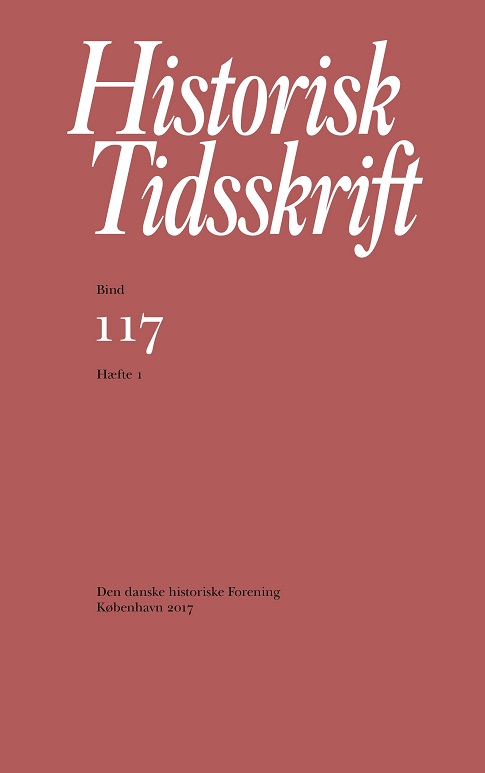Den antikatolske Holberg: kirke, stat og naturret i skyggen af Samuel Pufendorf
DOI:
https://doi.org/10.7146/ht.v117i1.96978Resumé
The Influence of Samuel Pufendorf on Ludvig Holberg’s Thinking on Church, State and Natural Law
It is well known that the normally moderate and tolerant Danish historian, author and moral philosopher Ludvig Holberg (1684-1754) was deeply anti-Catholic and that he was influenced by the German natural law philosopher Samuel Pufendorf. However, the true extent of Holberg’s anti-Catholic bias and its true significance for his religious and political views have not been recognized. The article demonstrates that Holberg’s strident anti-Catholicism – he actually subscribed to a sort of conspiracy theory – was no mere traditional Protestant prejudice, but must be understood against the background of his fundamental religious, political and historical convictions. He believed in natural religion and preferred the "old simplicity" of the original Christianity. He thought that secular authority ought to direct religious as well as secular matters and that any ecclesiastical autonomy led to an unnatural "two-headed" regime. And he believed that Constantine the Great had shown a fatal lack of judgement when he allowed Christian church leaders to continue their relative independence at the moment when he himself had become Christian and was thus "qualified" to govern the church directly. On these and several other points it can be demonstrated that Holberg followed closely and sometimes even copied the very words of chapter 12, on the Papacy, of Samuel Pufendorf’s influential An Introduction to the History of the Principal Kingdoms and States of Europe (1682).Downloads
Publiceret
Citation/Eksport
Nummer
Sektion
Licens
Ophavsret til bidrag i Historisk Tidsskrift tilhører forfatterne og Den danske historiske Forening som udgiver af Historisk Tidsskrift. For illustrationer gælder den ophavsret, som står anført i billedteksten. Ophavsretslovens almindelige bestemmelser gælder, hvilket vil sige, at ophavsretten gælder i 70 år efter forfatterens død. Bidrag i Historisk Tidsskrift må derfor, med forbehold for en ”moving wall” på tre år, frit downloades, læses, gemmes, anvendes og citeres (med kildeangivelse) i privat og videnskabelig sammenhæng, men de må ikke helt eller delvis genudgives af tredjepart, heller ikke i redigeret form, uden tilladelse fra forfatterne og Den danske historiske Forening. Henvendelse skal i så fald rettes til Historisk Tidsskrifts redaktion på histtid@hum.ku.dk.





